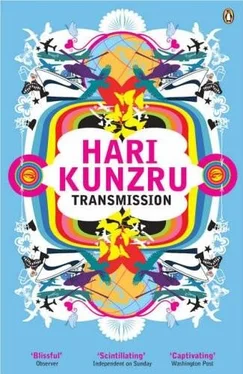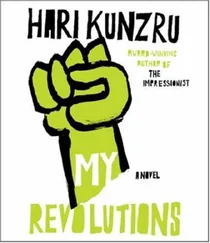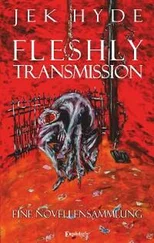At eight the northern summer sun was still so bright that it felt like mid afternoon. The hills changed colour as clouds passed overhead, cycling through phases of purple and green and brown. They had reached the west coast, near the bridge connecting the mainland with Skye. A narrow road twisted its way between a sheer granite cliff faced with wire mesh and the gravelled shore of Loch Lone, whose disturbed surface looked like a huge scratched sheet of steel. As Rob D. pulled the minivan through the stone gateposts of the Clansman’s Lodge Hotel, she saw her work standing around, watched by a wary local constable. A TV van and a few hire cars had pulled up on to the grass verge, and a scattering of bored journalists, news people from the drab look of them, were smoking cigarettes and making phone calls and eating sandwiches and pissing against the trunks of the conifers in the plantation which ran up to the boundary of the hotel grounds.
Rising steadily above the water, the Lodge’s driveway ran for about half a mile, executing a gentle arc around the lake shore, until the building itself came into view, a stark two-storey manor house with whitewashed walls and steeply gabled grey slate roofs, set in an acre of immaculate lawn. The building was neither ugly nor beautiful, a functional place whose architecture spoke of Christian modesty and the need to insulate against winter draughts. In the driveway a group of workmen were loading folding chairs and tables into a pair of large catering trucks, buffeted by the wind. Rob D. parked in front of a glassed-in porch and, as he pulled her bag from the back of the van, told her, as if it were a valuable and possibly even classified piece of information, his room number. She suggested he had a wank. ‘Bitch,’ he muttered under his breath.
Though the exterior of the hotel was stark, the entrance hall (and, Gaby later discovered, the bar, the restaurant and the billiards room) was carpeted in a violent red-green tartan and crammed with a Victorian clutter of stags’ heads, dirks, rusty guns, pewter, banners, cases of fishing flies and golf balls, prints of weeping swains and ruined castles, sporting trophies, sagging furniture and, by the stairs, a dubious-looking suit of armour. At front desk was a sour-faced clerk and a rack of leaflets inviting Gaby to taste authentic Scottish offal cookery, visit a woollen mill and discover the eternal mystery of the Picts. As the clerk looked up her name in a leather-bound ledger, a haggard-looking Indian man appeared and introduced himself as Rakesh, the location manager.
‘Are they still outside?’ he asked.
‘The journalists? Yes, they are.’
‘We have a situation,’ he said, with the mournful expression of a diplomat telling his premier that war is inevitable. ‘It is most delicate.’
‘What kind of situation?’ asked Gaby. Rakesh looked nervously at the clerk, who was making no effort to disguise his interest in their conversation.
‘Come to Mr Prasad’s room in half an hour. We’ll explain everything.’
Rocky Prasad was younger than she had expected. He sat by the window looking wistfully at the sunset, his smooth round face like that of a schoolboy who has another hour of maths before break. He could not, Gaby decided, be much older than twenty-five. His neat white polo shirt and pressed jeans reduced his age still further, and she had to remind herself that this was a man who had already directed three feature films and was (or so claimed the cuttings faxed through to Bridgeman & Hart) the great hope of Indian commercial cinema. During the meeting he said almost nothing, whispering intermittently to the DP, another fresh-faced young man whose downy moustache and conspiratorial fidgeting reinforced the schoolboy impression still further.
The talking was done by the producer, Naveed Iqbal. A portly man in his fifties, he was the only one of the group gathered in Prasad’s hotel room to be attired in (semi) traditional Indian dress, the long tails of his cotton kurta hanging down incongruously from beneath a lemon-yellow Pringle golf jumper. He had the look of a man who had recently been fed and would soon be again. From his Afro-like shock of wiry grey hair to the pouches of dark skin under his eyes, everything about him repelled Gaby, a feeling compounded by the frank sexual relish with which he examined her as she sat down. While he spoke he rubbed his hands together as if it was important to keep them occupied to prevent involuntary grabbing or pinching.
‘Do you have midges in proper London, Miss Caro? Or is it only in your northern parts?’
‘Midges? You mean the insects?’
‘Yes. Biting insects. Very serious bite, Miss Caro. God knows capable of putting actress out of action for days and days.’
‘No, they don’t have them. At least I don’t think so. I don’t follow.’
‘You see, we are here in Scottish Highlands to picturize an important song, the theme song to our movie. It is very romantic song such as would bring tears to your beautiful eyes, madam, if you spoke Hindi-Urdu language and hence calls for mountains and castles and so forth. It does not call for biting insects, which are also here in romantic Scottish Highlands. Two days ago when preparing to shoot the battlement sequence over at fort location our heroine Miss Zahir has been bitten. Doctor is attending and pronouncing no trouble, top bill of health, but Miss Zahir is insisting all is not well inside, and so naturally concerned we have halted schedule for one day. Yesterday when her first call comes in the morning we are told midge trouble is not yet gone away and also she is having bad case of lost voice due to the cold air and climate. And today also Miss Zahir continues to feel unwell despite the occasion of her birthday and large party planned to celebrate. Miss Zahir is a most sensitive young woman, Miss Caro.’
‘I can see that. So I take it she won’t be making herself available for interviews about this computer-virus story?’
‘Interviews? I personally would be grateful if she would be making herself available for shooting first.’
It was unclear in which sense Mr Iqbal meant this comment, but around the room there were scowls and nods of assent. This, Gaby realized, was not a happy production.
‘She does not come out of her room,’ continued Iqbal. ‘This morning we gave a cake. A hundred candles ordered from Harrods London and still she will not come out of the room. After we go away cake is gone from outside room. Later approximately half of cake is discovered in flowerbed underneath room window.’
‘She probably scoffed the rest.’ The speaker was the only other woman present: thirty-something and comprehensively beautified, her black hair tied up in a long pony-tail. Her tracksuit, bearing the logo of an American designer diffusion label, was accessorized with metallic pink tennis shoes and a lot of silver jewellery. Gaby smiled at her, and she deliberately swivelled her black-rimmed eyes away, pretending to examine her nails. The choreographer, apparently.
Iqbal looked at her, then back at Gaby. ‘The last thing on our minds is this computer business. In my opinion, computer business is perhaps at the root of Miss Zahir’s midge bite. For us, the important thing is to get back to work. Every hour she lies in her bed I have to pay electricians and caterers and Miss Jain’s twenty-five beautiful dancers and the old Lord skinflint who owns the fort and God knows who else, so you can see, Miss Caro, it is one hundred per cent imperative to make all these newspaper fellows go away so we can carry on making a masterpiece of modern contemporary cinema.’
Gaby thought for a while. ‘The quickest way to make them go away is for her to talk to them. It doesn’t have to be all of them. I could arrange a schedule. One or two of the key news people, perhaps.’
Читать дальше











